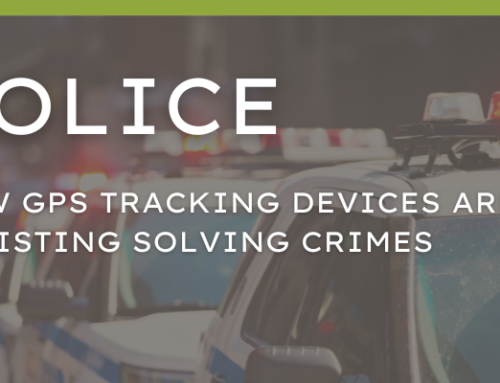Are you tired of constantly worrying about the safety of your luggage during travel? GPS trackers are here to alleviate your concerns and grant you peace of mind. With their advanced technology and real-time tracking capabilities, these compact devices ensure the security of your belongings while you focus on enjoying your journey.
By attaching a GPS tracker to your luggage, you can know exactly where your belongings are at all times. Whether it’s on a crowded airport carousel or in the back of a taxi, you can easily track your luggage’s location using your smartphone or computer. This reduces the stress of lost or delayed bags and provides a sense of security knowing that you can recover your belongings if they end up in the wrong hands.
In addition to location tracking, GPS trackers offer additional features like geofencing, which notifies you when your luggage leaves a designated area, and motion detection, alerting you to any unauthorized movement. Some trackers even come with built-in cameras, allowing you to visually confirm your bags’ surroundings.
Don’t let the worries of lost or stolen luggage ruin your travel experience. Invest in a GPS tracker and enjoy the peace of mind of knowing your belongings are safe and sound.
How GPS trackers work
GPS trackers are compact, battery-powered devices that utilize the Global Positioning System (GPS) to determine the location of an object, in this case, your luggage. These trackers are equipped with a GPS receiver that communicates with a network of satellites orbiting the Earth, allowing them to pinpoint the precise location of the tracker and, consequently, your belongings.
The GPS tracker uses this location data to transmit the information to a connected app or web platform, which you can access on your smartphone, tablet, or computer. This real-time tracking capability enables you to monitor the location of your luggage at all times, whether it’s in the back of a taxi, on the airport carousel, or in the cargo hold of an airplane.
The technology behind GPS trackers is continuously evolving, with newer models offering enhanced features such as Bluetooth connectivity, cellular data transmission, and even built-in cameras. These advancements allow for more comprehensive monitoring and increased security for your luggage, ensuring that you always have a clear picture of where your belongings are and what’s happening to them.
Benefits of using GPS trackers for luggage security
One of the primary advantages of using GPS trackers for luggage security is the ability to track your belongings in real-time. This feature is particularly useful when your luggage is out of your direct sight, such as during the check-in process at the airport or when it’s being loaded onto a plane. By monitoring the location of your bags, you can quickly identify if they’ve been misplaced or diverted, allowing you to take immediate action to recover them.
Another significant benefit of GPS trackers is their ability to deter theft. The presence of a visible GPS device on your luggage serves as a deterrent to potential thieves, who may be less inclined to target your belongings if they know they can be easily tracked. This can provide an added layer of protection for your valuables, giving you greater peace of mind during your travels.
In the event of lost or stolen luggage, GPS trackers can be instrumental in the recovery process. By providing the location data of your bags, you can work with airline staff, law enforcement, or the GPS tracker’s customer support team to quickly locate and retrieve your belongings. This can save you the time, hassle, and emotional distress associated with dealing with lost or stolen luggage.
Peace of mind while traveling with GPS trackers
Traveling can be a stressful experience, with concerns about the safety and security of your belongings often weighing heavily on your mind. By using a GPS tracker for your luggage, you can alleviate this worry and enjoy your journey with a greater sense of peace and tranquility.
The ability to monitor the location of your bags in real-time can provide a significant boost to your overall travel experience. Instead of constantly worrying about the whereabouts of your luggage, you can focus on the more enjoyable aspects of your trip, such as exploring new destinations, indulging in local cuisine, or spending quality time with your loved ones.
Moreover, the peace of mind that comes with using a GPS tracker can have a positive impact on your mental and emotional well-being. Knowing that your belongings are secure and that you have the means to track them can reduce the stress and anxiety that often accompanies travel, allowing you to fully immerse yourself in the experience and create lasting memories.
Types of GPS trackers for luggage security
When it comes to GPS trackers for luggage security, there are several different types available on the market, each with its own unique features and capabilities. Understanding the various options can help you make an informed decision when choosing the right tracker for your needs.
One of the most common types of GPS trackers for luggage is the standalone device. These compact, battery-powered units are designed to be easily attached to your luggage, whether it’s a suitcase, backpack, or duffel bag. Standalone trackers typically offer real-time location tracking, geofencing, and motion detection capabilities, providing you with comprehensive monitoring of your belongings.
Another type of GPS tracker is the integrated solution, which is often built into the luggage itself. These trackers are seamlessly incorporated into the design of the luggage, offering a more discreet and streamlined tracking experience. Integrated trackers may also provide additional features, such as remote locking mechanisms or weight sensors, to enhance the overall security of your belongings.
Features to consider when choosing a GPS tracker for luggage
When selecting a GPS tracker for your luggage, it’s essential to consider a range of features that can enhance the security and functionality of the device. One of the most important factors to consider is the tracking technology used by the tracker, as this will determine the accuracy and reliability of the location data.
Another crucial feature to look for is the battery life of the GPS tracker. Depending on your travel plans and the duration of your trips, you may want a device that can provide extended battery life, ensuring that your belongings are continuously monitored throughout your journey.
Additional features to consider include geofencing capabilities, which can alert you when your luggage leaves a designated area, as well as motion detection, which can notify you of any unauthorized movement or tampering. Some GPS trackers also offer built-in cameras, allowing you to visually confirm the status and surroundings of your luggage.
How to use GPS trackers for luggage security effectively
To maximize the benefits of using a GPS tracker for your luggage security, it’s important to understand how to properly set up and utilize the device. The first step is to ensure that the tracker is securely attached to your luggage, either by using the provided clips, straps, or an integrated design.
Once the tracker is in place, you’ll need to download the corresponding mobile app or access the web-based platform to connect the device to your account. This will allow you to monitor the location of your luggage in real time and receive alerts and notifications as needed.
It’s also crucial to familiarize yourself with the various features and settings of your GPS tracker, such as geofencing, motion detection, and battery life monitoring. By customizing these settings to your specific travel needs and preferences, you can optimize the tracker’s performance and ensure that you receive the most relevant and actionable information.
Case studies: Real-life examples of GPS trackers preventing luggage loss
The power of GPS trackers in ensuring the security of your luggage is best demonstrated through real-life case studies. One such example is the story of a business traveler who was attending a crucial meeting in another city. When her luggage failed to appear on the baggage carousel, she immediately checked the GPS tracker attached to her bag and was able to pinpoint its location at a nearby airport terminal.
Armed with this information, she quickly contacted the airline’s customer service, and within a short time, her luggage was retrieved and delivered to her hotel, allowing her to attend her meeting without any disruption. This case highlights the invaluable role that GPS trackers can play in the recovery of lost or misplaced luggage, providing travelers with the peace of mind and the tools they need to take immediate action.
Another case study involves a family who were vacationing in a foreign country. During their stay, their luggage was accidentally switched with another passenger’s at the airport. Fortunately, the family had equipped their bags with GPS trackers, which allowed them to quickly locate their belongings and coordinate with the airline to have them returned, ensuring a seamless continuation of their trip.
GPS trackers vs. other luggage security measures
While GPS trackers offer a comprehensive solution for luggage security, they are not the only option available to travelers. Other luggage security measures, such as traditional locks, tamper-evident seals, and RFID-enabled tags, can also play a role in protecting your belongings.
Traditional locks, for example, can provide a physical barrier to deter would-be thieves, while tamper-evident seals can alert you to any unauthorized access to your luggage. RFID-enabled tags, on the other hand, can help you identify your bags at the airport and potentially trace their location through the airline’s tracking system.
However, these alternative security measures often lack the real-time tracking and monitoring capabilities of GPS trackers. By combining GPS technology with other security features, travelers can create a multi-layered approach to protecting their luggage, further enhancing the overall security of their belongings.
As technology continues to evolve, the future of GPS trackers for luggage security looks increasingly promising. With advancements in battery life, connectivity, and sensor technology, these compact devices are poised to become even more powerful and versatile in their ability to safeguard travelers’ belongings.
One potential development in the realm of GPS trackers is the integration of advanced features, such as machine learning and artificial intelligence, to provide even more sophisticated tracking and analysis capabilities. This could enable GPS trackers to detect and respond to suspicious patterns or behaviors, further enhancing the security of your luggage and providing you with an even greater sense of peace of mind.
Moreover, the increasing prevalence of smart luggage and the integration of GPS tracking technology into the design of suitcases and bags could lead to a future where luggage security is seamlessly woven into the travel experience. As the demand for reliable and comprehensive luggage security continues to grow, the role of GPS trackers in providing that assurance is likely to become even more essential for discerning travelers.





